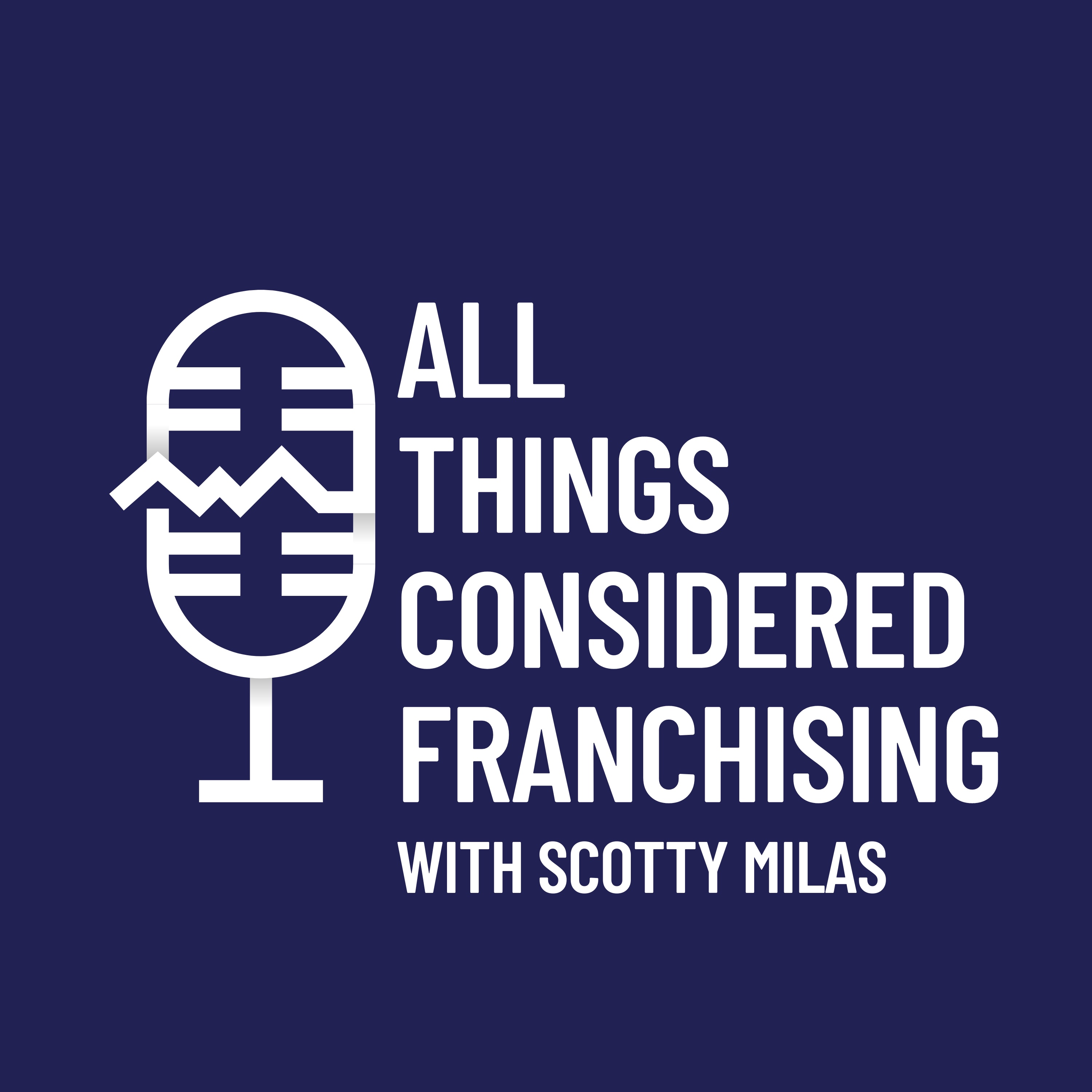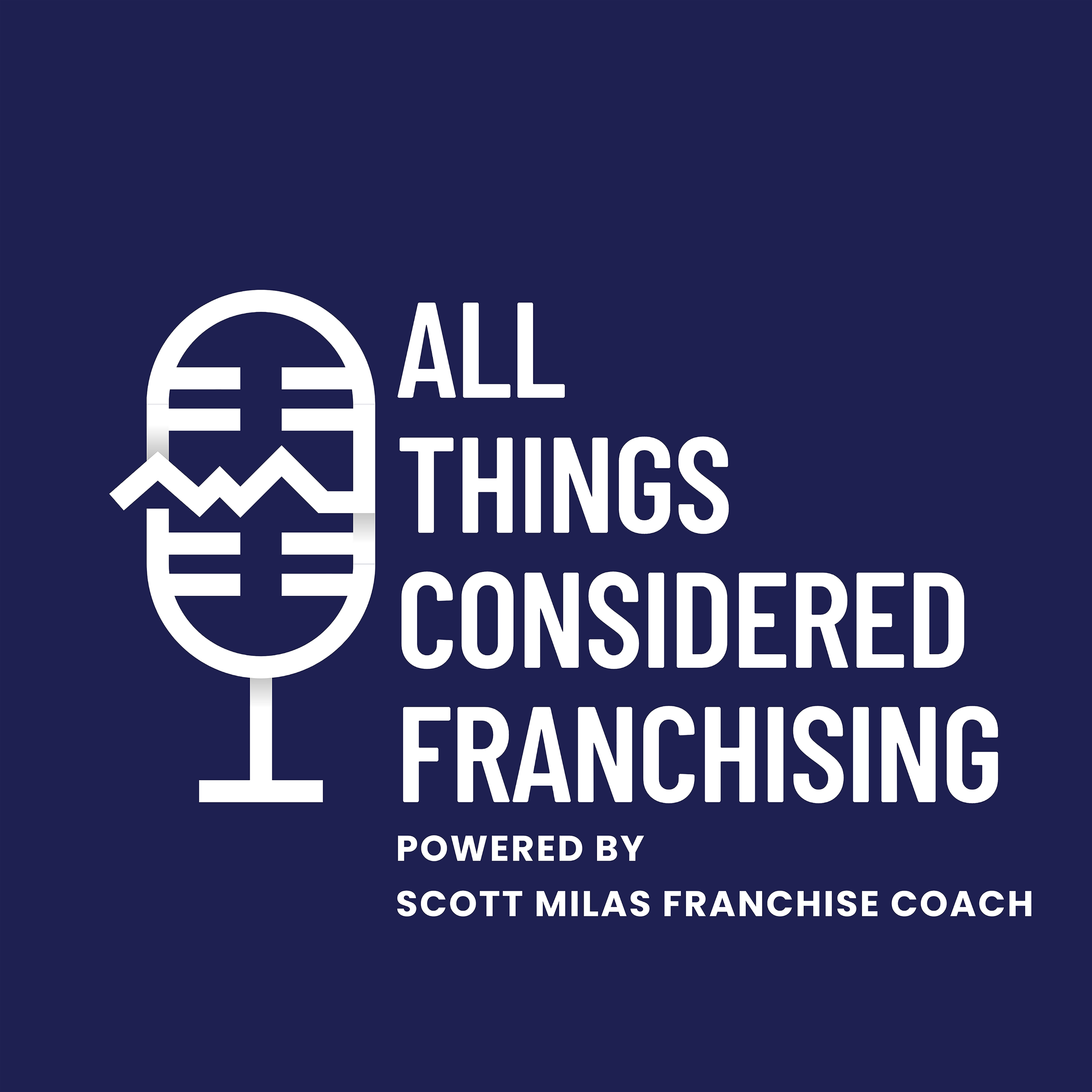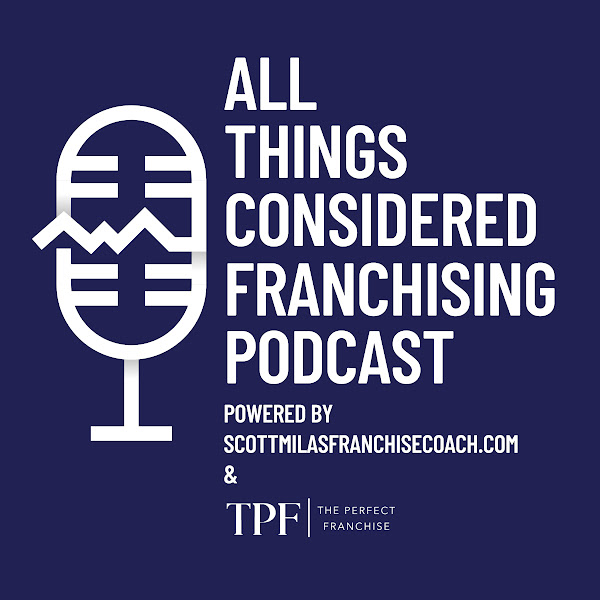[00:00:06] Hey, everybody. Welcome to another episode of All Things considered. Franchising, powered by Scott Milosfranchisecoach.com. I am your host, Scott. Scotty Milos.
[00:00:18] Today we're going to continue our educational series, episode number three. Series number three, whatever you want to call it. And we're going to kind of take a deep dive into the questions you should be asking yourself or discussing or discussing with a franchise consultant much like myself, consultant, coach, whatever you want to define us as a broker to set you up to be able to review and be presented opportunities that potentially fit based on the model that you and your coach consultant, broker are building. Just to do a quick recap, episode number one was just kind of getting yourself psyched to get out of your chair, kind of stand up and say, okay, I'm ready to start learning about franchise opportunities, or at least have had those discussions with family, a significant other spouse, that this is what you're looking to do, considering possibly leaving corporate America and kind of going on the entrepreneurial journey. Episode number two is more of the psychological things that you should be thinking about, discussions you should be having internally with family, friends, spouses and so forth, and other various, what I would call the psychological side of deciding that you at least want to investigate and learn about business ownership.
[00:01:47] The third series, as I said, we're going to talk about some of the dialogue and conversations you should be having that will probably come up, or at least should come up with working with a coach. And I think one of the first things that I want to share with you that at least is very important to me and at least addressing with my clients when we're having this half hour, 45 minutes, 1 hour consultation, is that it's very important in your conversations that you try to think more as a business owner than a w two employee. Now, I know that's hard, but the reason I say that is that if you're thinking about investing in a business that cleans portable toilets, that does not mean that you're going to be cleaning the portable toilets. But you have to think as the business owner how you're going to build the business, how you're going to scale the business. And of course, you have your partner, the franchisor, that's going to be helping you with all of the operational marketing support. So that's the first thing, is that you really have to put that entrepreneurial hat on, that business owner hat on, and kind of stay away from, well, you know, if I took this job, this is what I'm going to be doing. And this is, you know, my responsibilities. Do I really want to do that? Remember, as a business owner, you are providing oversight and delegating the systems that the franchisor has created to become successful. You're not, unless you're a one man operation, it's just you. You're, in essence, going to have people that are going to be working for you and you're going to be delegating and managing those people.
[00:03:29] So one of the things that you also need to start thinking about as you address these questions as a business owner is that what are your short and long term whys? I call it w h y apostrophe s and no nos know apostrophe s. What is life going to be like three to five years from now? If you were to invest in a business, you did become potentially successful and you met your goals. So what are you looking to accomplish? What is your, why? What is your know know? And what do you want to accomplish by the end of three, four, five years? Now, the first thing is the normal reaction would be, hey, I want to make a lot of money. Well, of course, everybody wants to make a financial goal, but there have to be other avenues or other goals that you're looking to accomplish. For example, are you looking to scale? Are you looking to build this to something really, potentially as an enterprise, something bigger? Are you looking to keep this as a kind of a single unit, single territory, opportunity, not a lot of moving parts in the sense that you have one location, not looking for a big management team or vice versa. Are you looking to scale this, be an entrepreneur, build it into an enterprise? Multiple vans, multiple territories, multiple units. So those are some of the discussions that you should be having with your consultant. Also, you want to talk about things like work life balance. What do you want to do in the business? What don't you want to do in the business? What are your strengths? What are your weaknesses, really? Kind of focus in on the avenues of your long term. Why are you doing this? What are you trying to accomplish? And if you were accomplished and you were successful, what would life be different in three, four, five years from now? So those are some of the things that, at least in the initial conversation that we're having with my clients, I'm having with my clients that we want to take a dive into. You can't simply say that you're just looking to make money, because that's going to give a sense that you're only in this to buy a job.
[00:05:38] It's okay to keep it simple, but it's also okay to think that I want to build this bigger. But again, you have to understand where you want to be three, four, five years from now. It's all part of your structure, your model that you're creating, that criteria search.
[00:05:54] The other thing is that you have to share things that you like to do and what you don't like to do in your personal life. What do you like to do for fun with the family? If you have a family, if you have a significant other, you need to talk about your significant other spouse partner in the sense that the involvement that they're going to play within the business. So there has to be this conversation about who you are, how did you get to where you are? And the reason I say that is that because let's just say you're earning right now $150,000 a year or $100,000 a year, and you've been in your current position or situation for three, four, five years.
[00:06:31] That doesn't mean that if you invested in a business tomorrow that the next day you're going to be earning $150,000 a year. It took you time to get there. So we have to start talking about, or you have to start explaining your understanding of the timeframe and the things that you like to do to get to where you want to be. That's very important. Obviously, you want to talk about things that you don't like to do. That's important, too. But again, you got to focus in on just some of the things that you like to do for fun. Because if you can take that fun and turn it into a business, we have already heard that. We've all heard that word passion, then it's, it's something to consider. So those are two kind of the most important things. Not most important things, but important. First, two questions that we'd like to talk about in the consultation process, webinar zoom call and we'll pick up in episode four and five some of the other additional questions. But those are some of the things to think about. Again, just to recap, how is life going to be different three, four, five years from now? And number two, learning a little bit about yourself, your understanding, you, things that you like to do, your journey, your educational journey, if you have one, your trade school journey, maybe how you met your spouse, your significant other, the family. How did you end up where you're living? So those are some of the things that we're going to take a deep dive into. We'll pick up some additional questions in episode four and five. Again, this is Scott, Scotty Mildis, the host of all things considered franchise and powered by Scott. Milesfranchisecoach.com dot. If you'd like to reach me and have any general questions about business ownership, becoming an entrepreneur, feel free to reach out to me at 860-751-9126 or you can email
[email protected]. Dot. Visit the website scottmylasfranchisecoach.com and allthingsconsideredfranchising.com for a list of all the episodes of almost 100 episodes now. So again, this is Scott, Scotty Milo signing off. Until next time. We'll talk soon.


